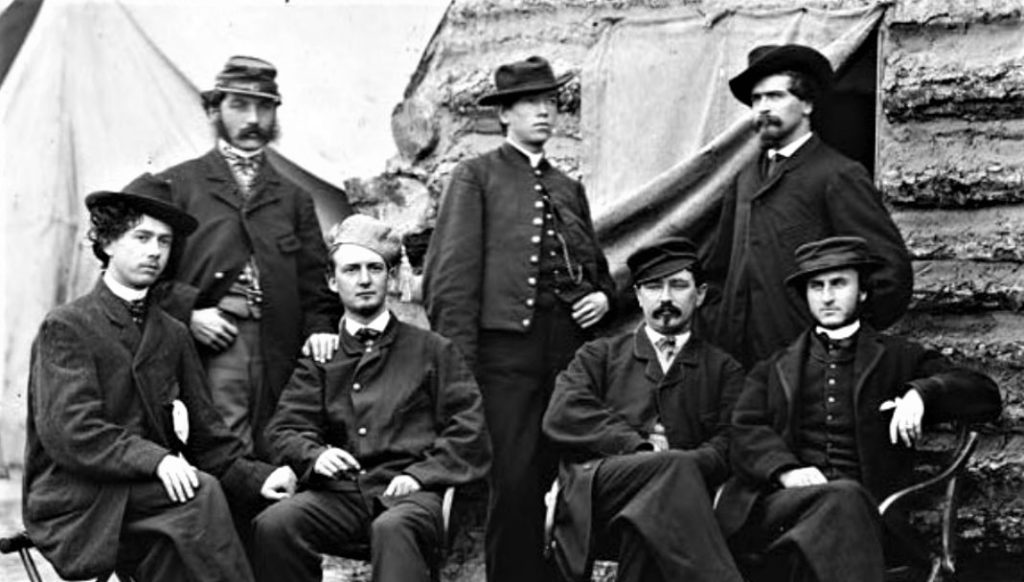THE PROBLEM
As the debates in the 2020 Democratic Presidential Primaries are starting to show, if there was ever a time for the successful extension of reparations for slavery to all Black Americans, that time has finally arrived. This conversation is truly happening on a national level, for the first time. Politicians running for the highest office in the land are suddenly feeling as though they must have at least have some response to the demand for reparations, and that is significant. Something is happening here.
However, as should be clear to anyone who is paying attention, actual reparations, in the form that economists recommend, are almost certainly not going to happen–almost none of them are advocating cash payments of roughly $142,000 for each and every African-American person currently living today. So, unfortunately, given the history of the United States, where the country is at right now, and given the milquetoast nature of the proposals being laid out, reparations are probably not around the corner, regardless of what those seeking the national spotlight might pay lip service to.

To clarify a bit, $142,000 per person is the amount economist Robert Browne estimates would be necessary to economically restabilize the Black population and redress the “racial wealth gap”, which he estimates at some $1.4-4.7 Trillion in economic losses over the course of persistent anti-Black racism, including 250 years of slavery, countless lynchings, Jim Crow policies, police shootings, mortgage redlining, police profiling, and wrongful imprisonment.[1] Browne recommends this amount because, on average, 21st Century Black Americans still only possess about one-tenth the wealth enjoyed by whites.[2]
Be that as it may, it should be clear enough that a polite apology and verbal recognition of collective pain and suffering are about the most Black communities will ever get. Red states aren’t about fork over several trillion dollars for true reparations and blue states won’t do it either.
And, even if they would, reparations are not a simple matter of clearing the national conscience anyways–that stain is permanent. It cannot be bought, paid for, and cleared away, even if the continuing pain could, in fact, be partially alleviated. Democratic politicians like Kamala Harris, Elizabeth Warren, Cory Booker, and Bernie Sanders argue that this could be done through other means, such as expanded social programs available to everyone, and not only African-Americans. But they aren’t about to advocate $142,000 cash payments, that is clear to anyone who reads what their actual policies are, in this regard.
Of course, the question remains, why should universal social programs and specific cash payments like those advocated by Browne be seen to be mutually-exclusive options in the place? They are seen that way because those currently advocating for reparations, save for mostly-unknown and unelectable figures like Julian Castro and Marianne Williamson, are not actually speaking of reparations at all.

That the more well-known candidates like Harris, Warren, Booker, and Sanders differ on whether to reference these non-race specific policies specifically as “reparations” (Harris, Warren, and Booker), or to just state plainly that they aren’t (Sanders), is beside the point. What matters most is that, even with new social programs available to everyone, African-Americans would still be starting off on unequal footing, and would thereby remain behind other groups. Not everyone would experience uplift in the same way or to the same degree. So, we as a country either need to discuss the true form of reparations advocated by Browne (the only form worthy of the title), or we need a different plan, with a different name.
THE SOLUTION
At a minimum, any Democratic candidate worth supporting on this topic in 2020 should at least hold a policy position that is in line with that endorsed by the United Nations Working Group of Experts on People of African Descent (UNWGEPAD), which endorsed Michigan House Representative John Conyers Jr’s long-fought for HR 40 bill, the “Commission to Study Reparation Proposals for African Americans Act”.[3] If we cannot even get our representatives to advocate studying the issue as an official project of the Federal government, then perhaps they should not be elected at all, and we should be considering other candidates.
But in reality, we probably just need a different plan.
The alternative I advocate is simple. Grant ownership rights of Confederate States of America (CSA) artifacts and CSA properties more broadly, to an institution composed entirely of the Black descendants of slavery, that would be accountable to the Black American population as a whole through a series of official government structures. Perhaps this could be called the “Council of Black Americans”, CBA). Much as in contemporary Germany, where Dachau, Buchenwald, Sachsenhausen, and other concentration camps remain standing with full government support as a monument to the history of the Holocaust, the US would do much the same, turning otherwise horrific monuments into clearly defined markers of our violent, racist national past, governed by the CBA.

A common explanation is that the Civil War was fought over the moral issue of slavery. In fact, it was the economics of slavery and political control of that system that was central to the conflict. The election of a Republican, Abraham Lincoln, as President in 1860 sealed the deal. His victory, without a single Southern electoral vote, was a clear signal to the Southern states that they had lost all influence.
Feeling excluded from the political system, they turned to the only alternative they believed was left to them: secession, a political decision that led directly to war
Rather than simply leaving the CSA statues as they are, however, the CBA would build additional statues and explanatory plaques alongside the existing ones, in order to give context to say, CSA President Jefferson Davis’s statue that was recently relocated from its public display location at the University of Texas.[4] Rather than the 9-foot tall, 1,200 lb likeness standing there alone, additional statues of the same height, weight, and style depicting Black slaves in shackles or other historically accurate likeness for the time, could be juxtaposed to it, within the visible vicinity. The conjoined appearance of both would then serve as a reminder of what the CSA was seeking to enforce in its unsuccessful Civil War with the United States of America, which has prevailed.
The point, as would be clear enough, would not simply be exonerating the national conscience, but instead producing both a source of ongoing national reflection and reconsideration and a of revenue flows through which to fund an actual long term reparations plan, the details of which could remain to be determined until HB 40 has passed and been thoroughly implemented. Already, the USA’s national parks generate around $32 billion per year, while supporting nearly 500,000 jobs associated with their existence.[5] If CSA artifacts and properties were treated similarly by the CBA, rather than their existence serving as a financial drain on the US Federal government as they currently are (at a cost of around $40 million per year), the last vestiges of the CSA could actually accomplish the reverse, generating revenue that would benefit those who directly descend from those who suffered under them, in their original form.[6]

If the revamped and recontextualized CSA properties generated even 1/2 of what our other national parks generate presently ($8 billion annually), significant portions of Browne’s low-end $1.4 trillion figure could be achieved an ongoing annual basis, so that after several decades, the full amount would have been accrued and distributed to all living African-Americans. And, unlike Browne’s one-off payment idea, in this way, it could become an ongoing source of income, in perpetuity. By licensing and acquiring ownership of all CSA properties in short, the CBA could work with the UNWGEPAD and the US’s “Commission to Study Reparation Proposals for African Americans” alike, arriving at a common, workable plan that would not take money away from other programs, but would instead serve as new, self-funding programs that could not be easily defeated.
If a free market economy, as the US claims to have, is to really be “free”, those entering it should not be doing so from radically different starting places, simply because they derive from different racial groups with different political and economic histories. While outcomes may end up being different, the starting place of “equality of opportunity” is already enshrined in the US’s political documents and political culture. It is merely a matter of defining more clearly, what that actually means, and most importantly, how to fund it in a way that is not just about assuaging national guilt, but is instead about redressing the imbalance while at the same time, maintaining collective reflection and reconsideration in an ongoing manner.
-George Freeman
[1] “Six White Congressmen Endorse Reparations for Slavery”. The Journal of Blacks in Higher Education (27): 20–21.
[2] Christian Weller and Angela Hanks “The Widening Racial Wealth Gap in the United States after the Great Recession” Forum for Social Economics (2018) 42:2 https://www.tandfonline.com/doi/abs/10.1080/07360932.2018.1451769
[3] UNWGEPAD “Statement to the media by the United Nations’ Working Group of Experts on People of African Descent, on the conclusion of its official visit to USA”, January 2016. https://www.ohchr.org/EN/NewsEvents/Pages/DisplayNews.aspx?NewsID=17000
[4] https://www.texasmonthly.com/the-daily-post/jefferson-davis-back-ut/
[5] NPCA “National Park Visitation Generated $32 Billion for National Economy in 2015” https://www.npca.org/articles/1195-national-park-visitation-generated-32-billion-for-national-economy-in-2015
[6] Palmer, Brian; Wessler, Seth Freed (December 2018). “The Costs of the Confederacy”. Smithsonian Magazine.

